Saints Peter and Paul Basilica
Sat May 12, 2018 11:47 amSaints Peter and Paul Basilica originates in the 11th Century, but has been rebuilt in neo-Gothic style.
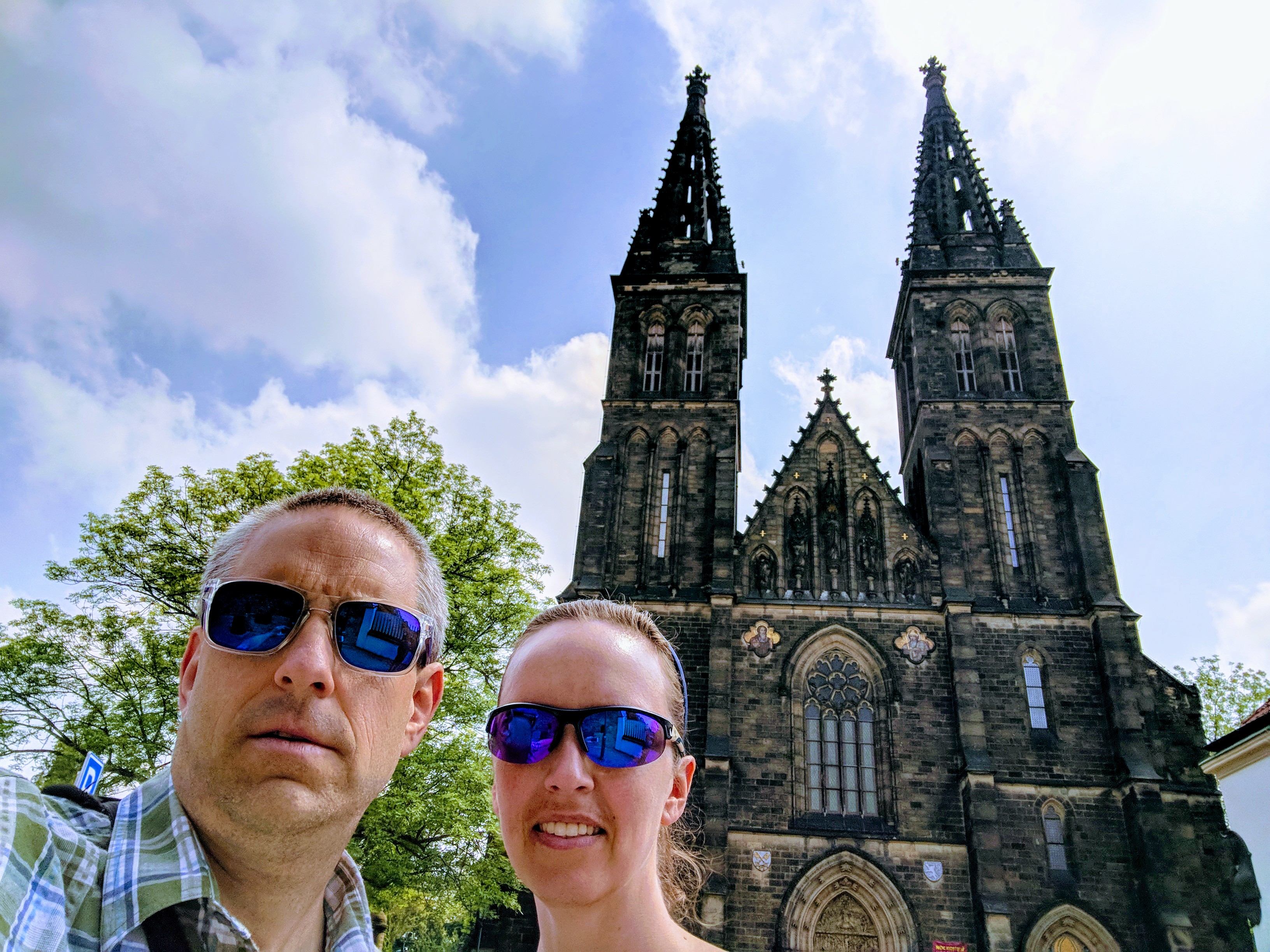
As previously discussed, Bohemian and Czech history is dominated by foreign empires, but Vyšehrad is more relevant to the native Czech and Bohemian Nations, than is the newer Prague Castle.
This is manifest in the neo-Gothic architectural style of which Bazilika svatého Petra a Pavla was rebuilt in the late 19th Century. While it is generally true that neo-Gothic architecture was popular in the late 19th Century, neo-Gothic architecture is much more magical and romantic than the neo-Classical style of the Enlightenment that came before, and thus aligns emotionally with the feelings of Nationalism that were also quite popular in Europe in the late 19th Century.
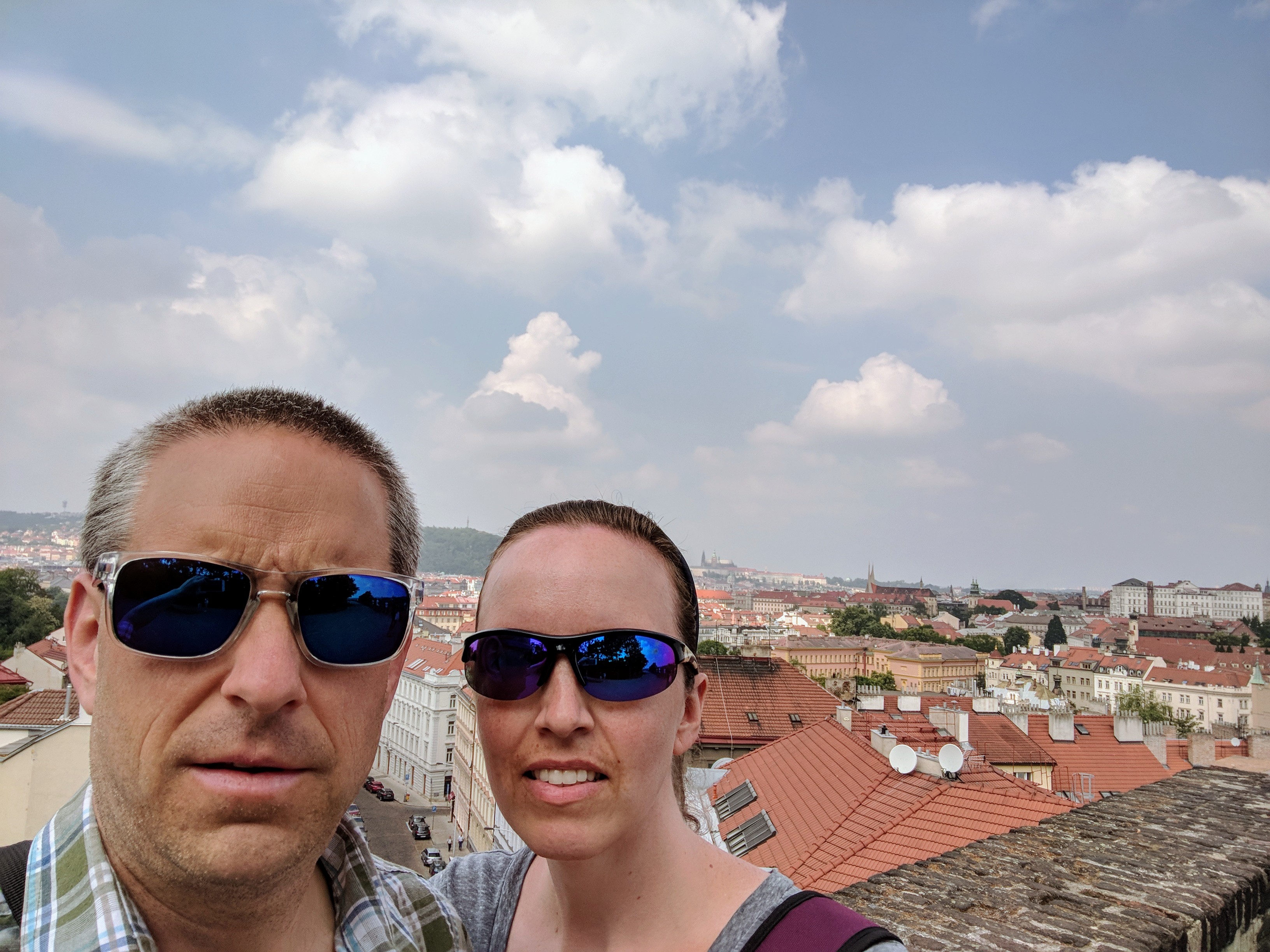
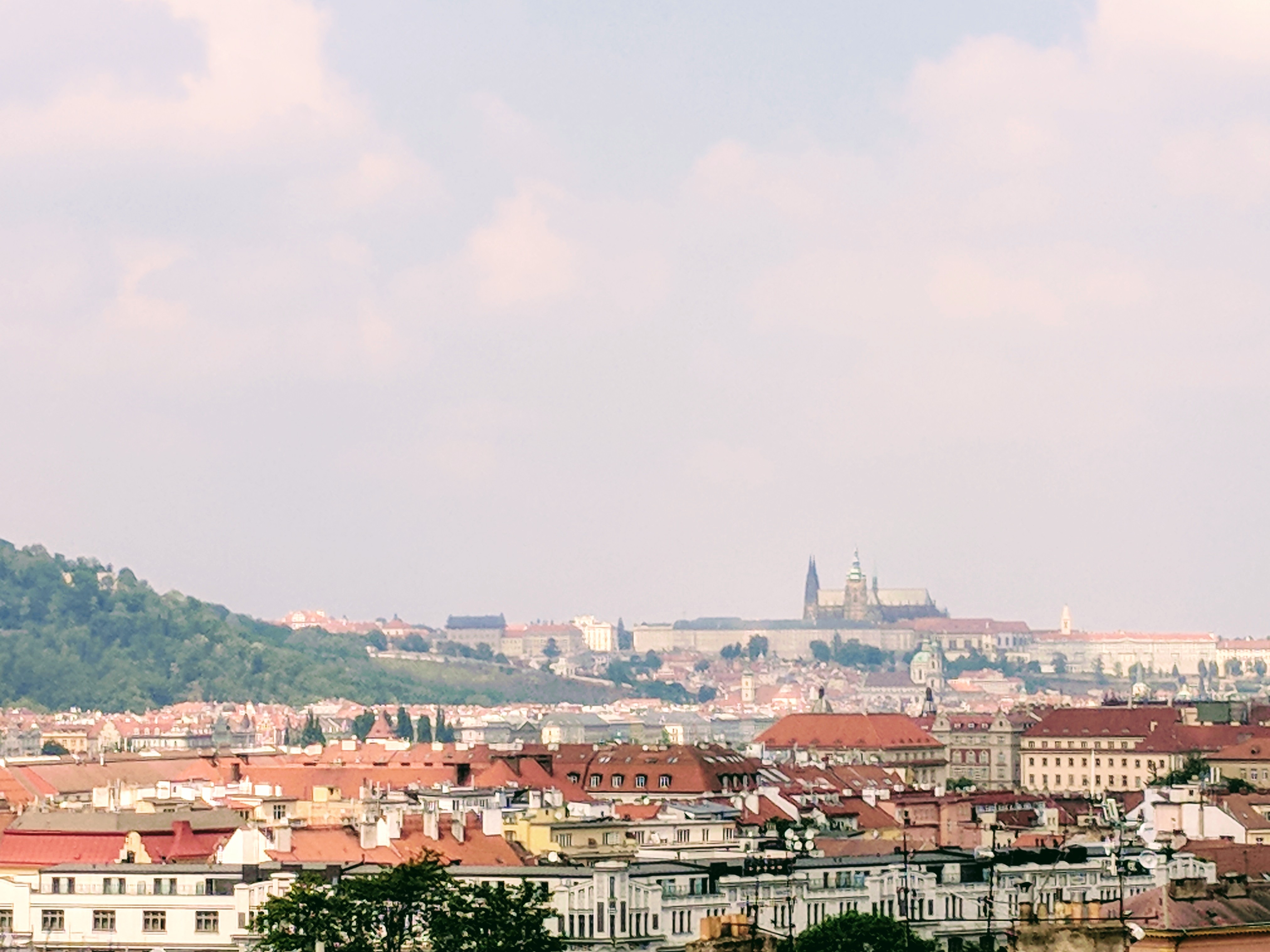
Looking north in the distance you can see St Vitus Cathedral above Prague Castle.
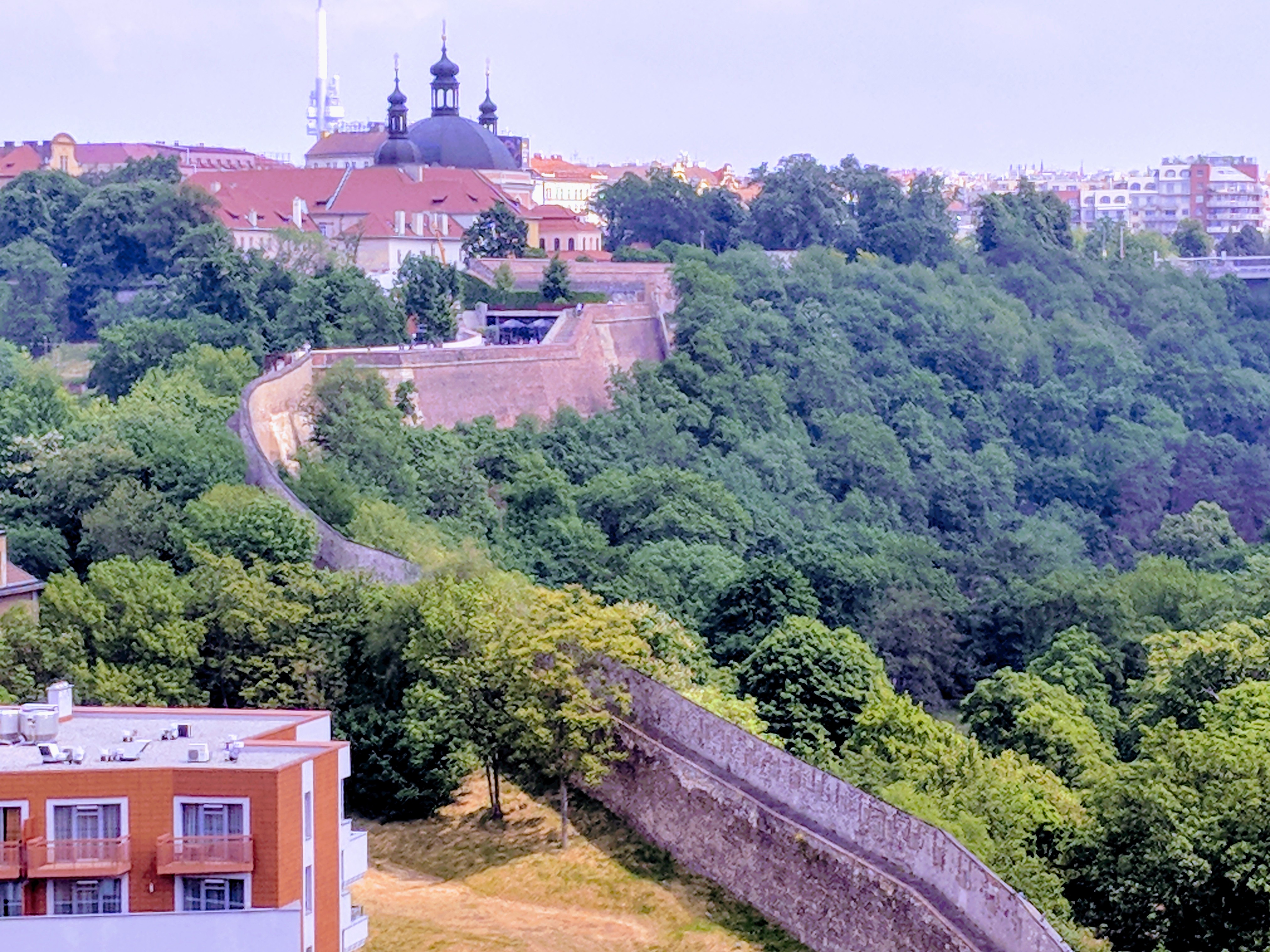
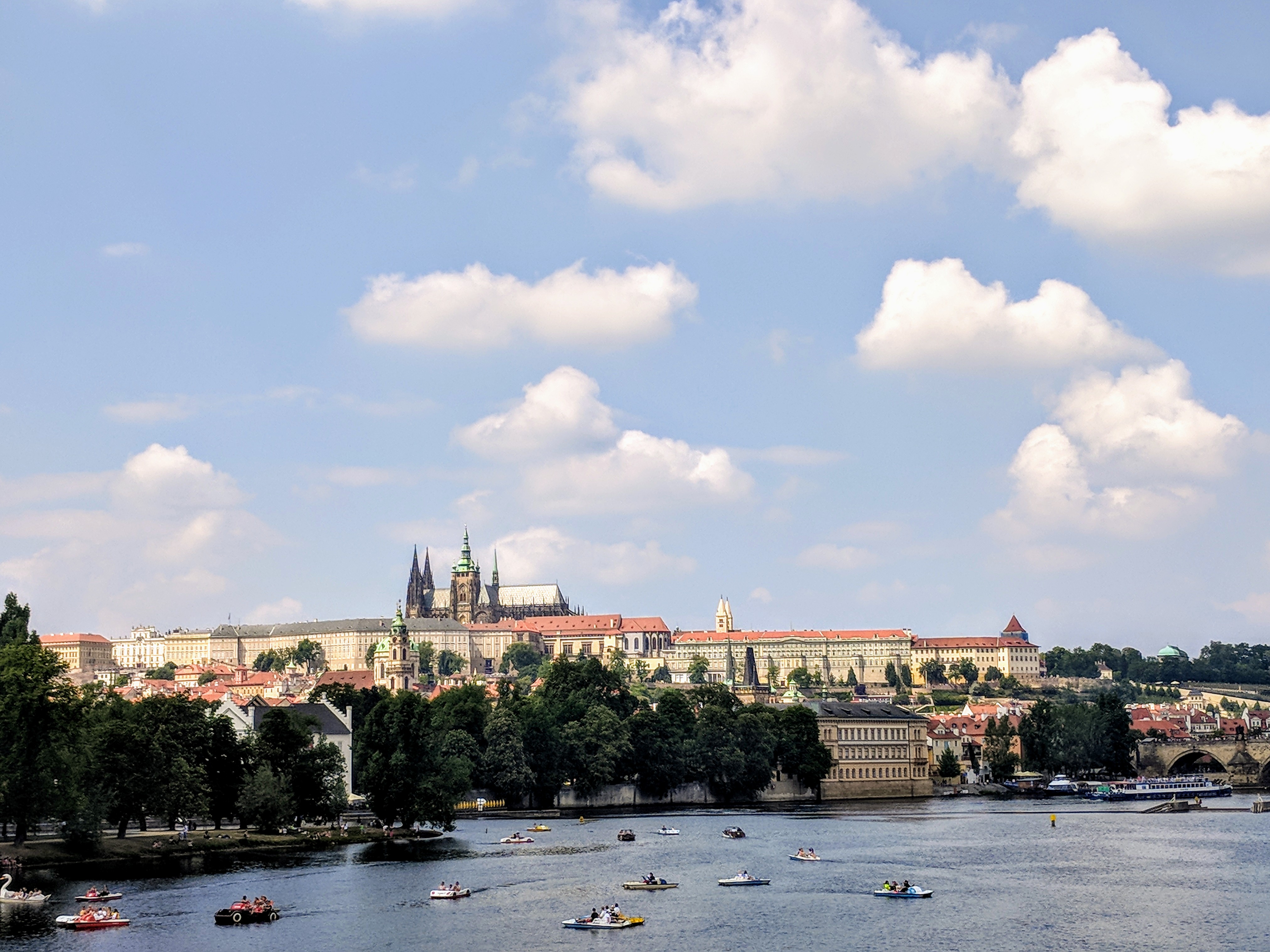
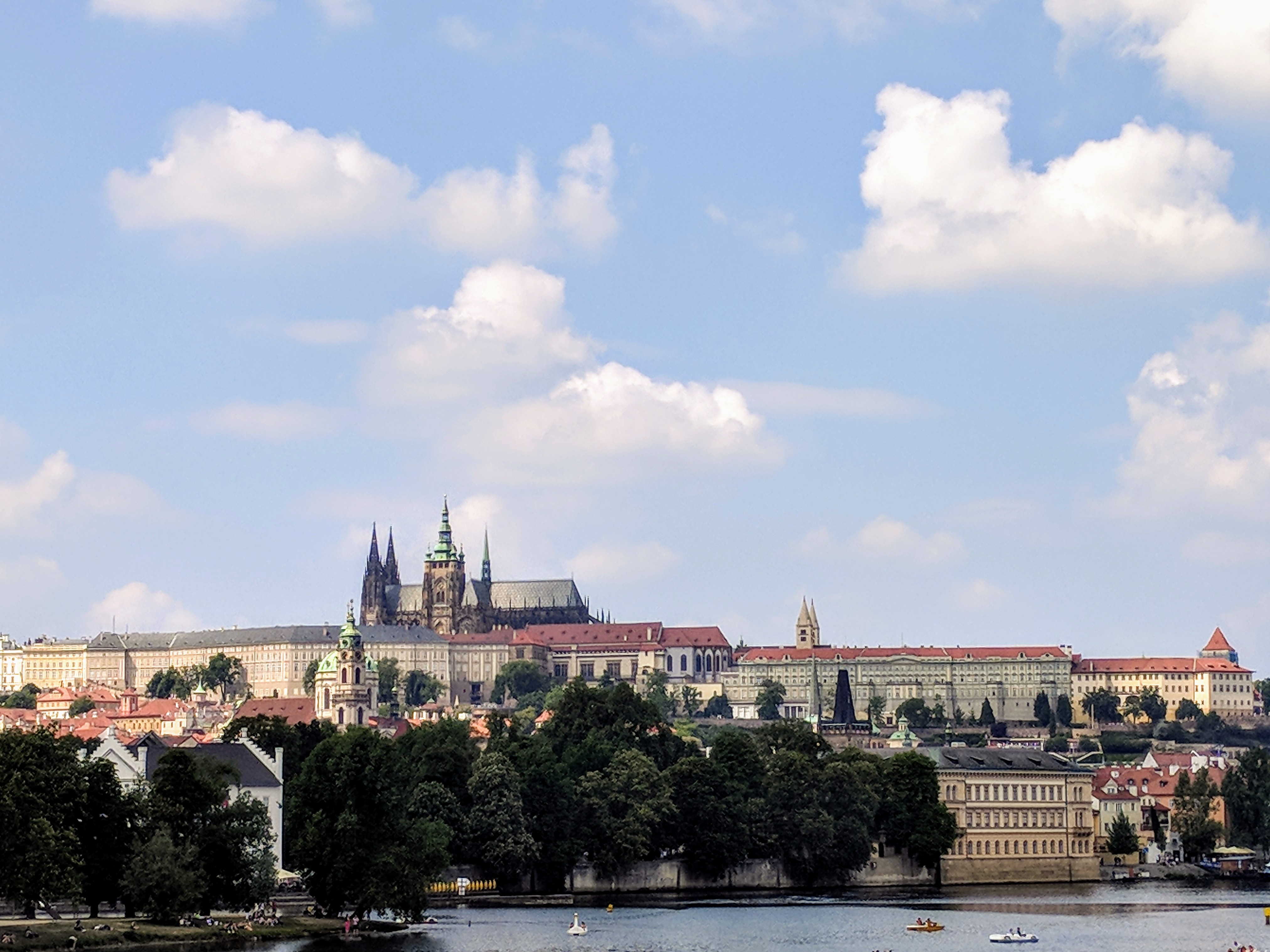
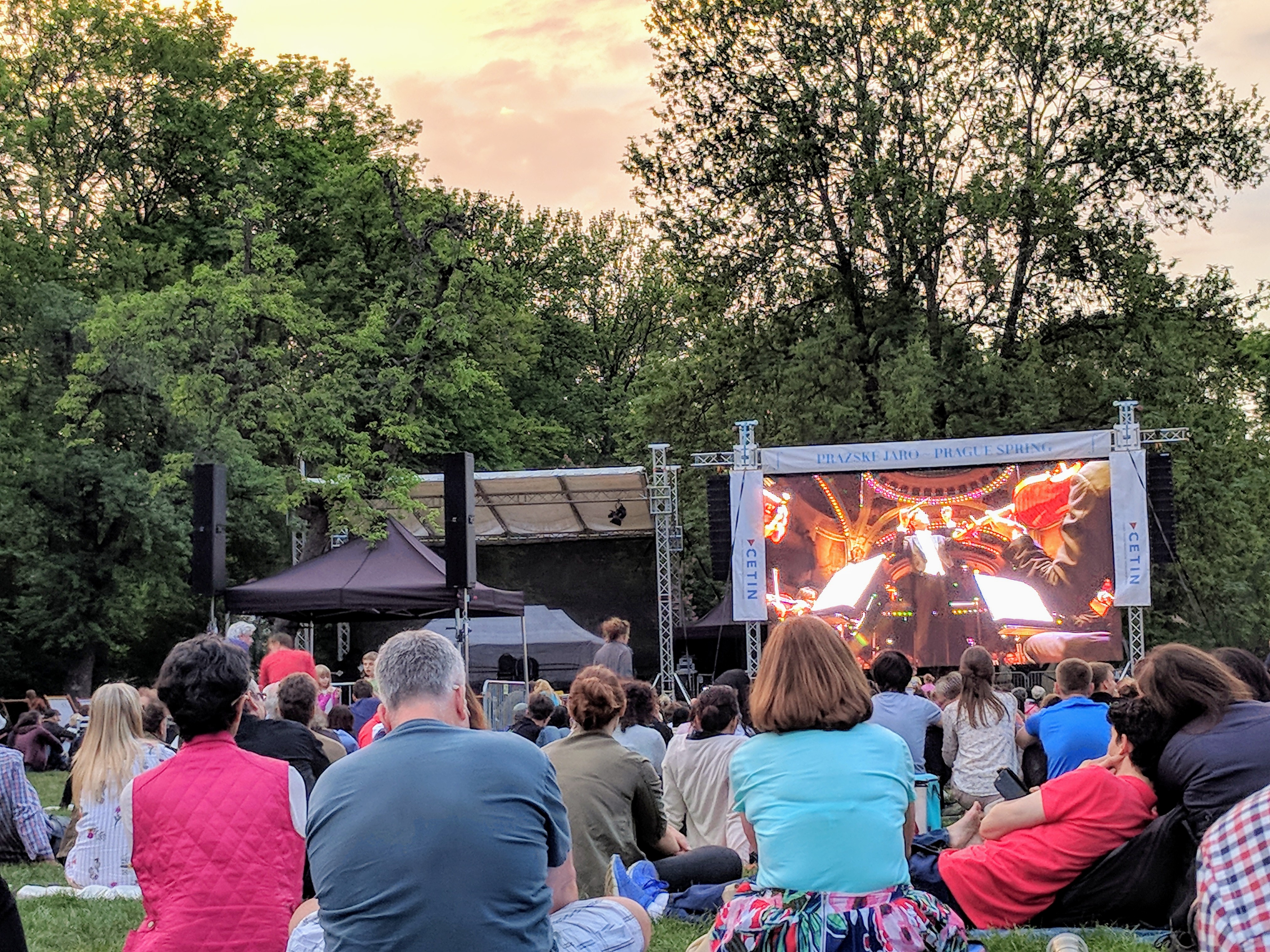
Having neither the funds, reservations, nor formal attire needed to put ourselves inside the National Theatre, we sat on the grass in Kampa Island and listened to the Czech Philharmonic perform Má Vlast, on the occasion of Prague’s Spring Classical Music Festival, and 2018 being the 100th Anniversay of Czechoslovakia.
Bedřich Smetana is a Romantic-era Czech National Icon; Má Vlast is a stirring and evocative symphony and Czechia is obsessed with it: train ticket machines, pa loudspeakers throughout the city, and the bells of Bazilika svatého Petra a Pavla all chime out the chorus from No. 2 Vltava (the Moldau).
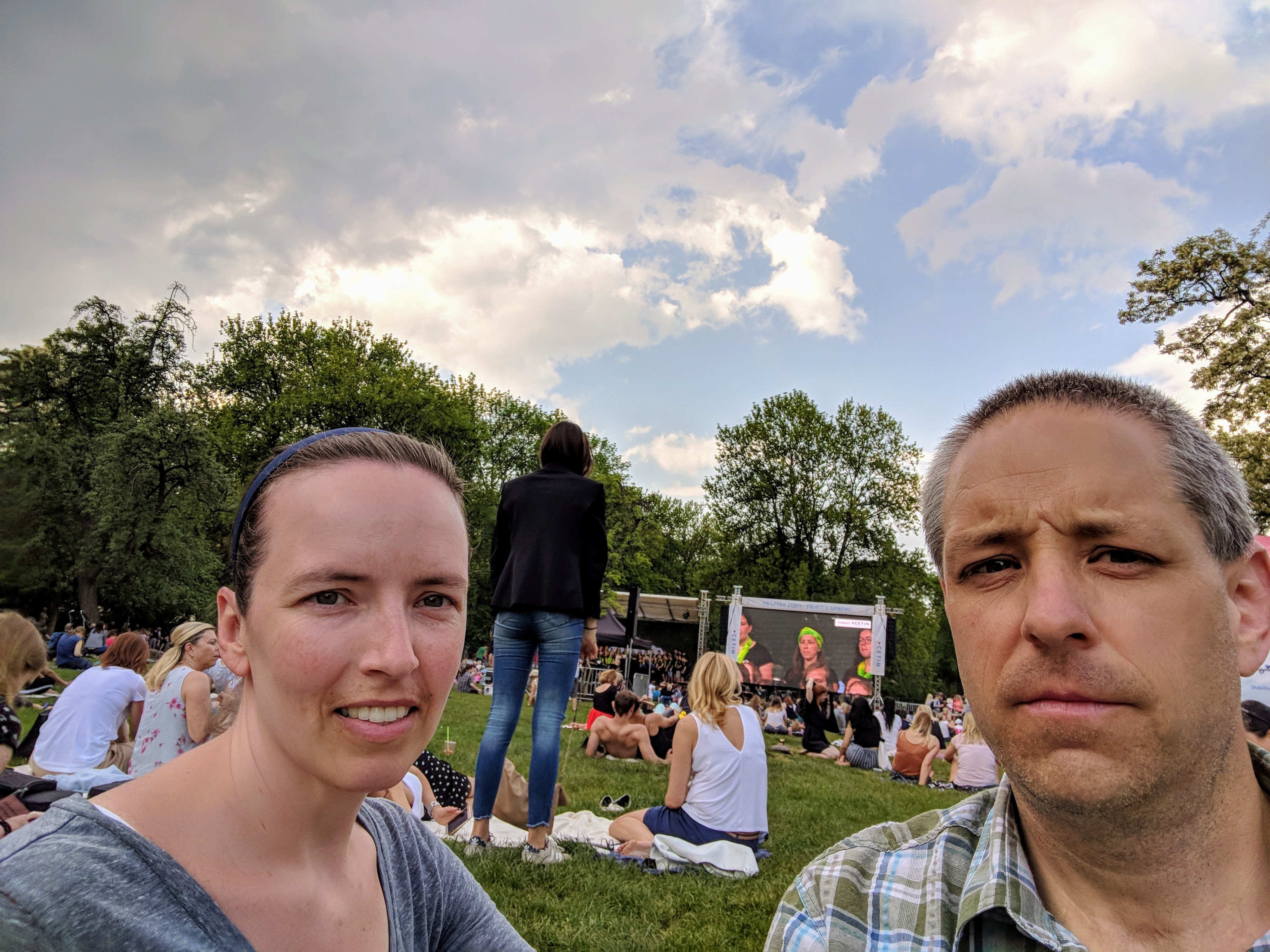
The next day we travelled by train through the scenic red sandstone canyon of the Elbe north to Dresden.